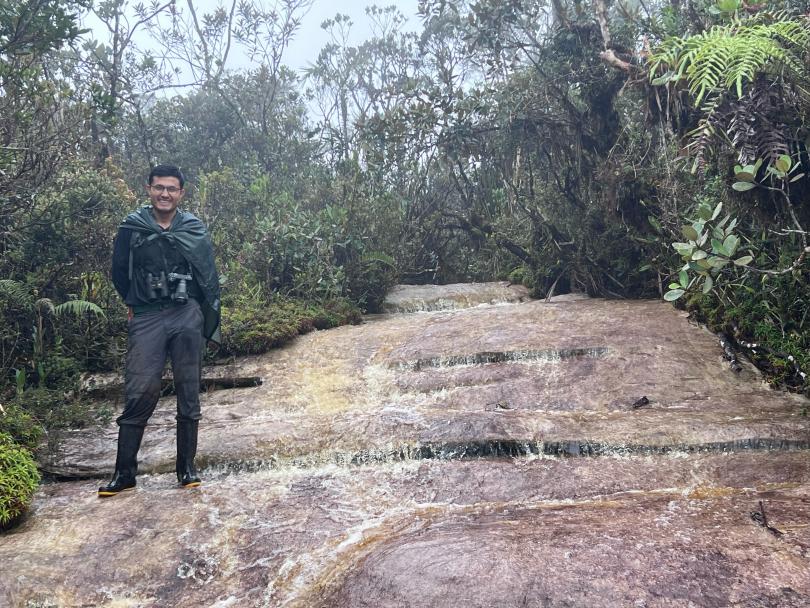MEET OUR SPRING 2025 GRADUATE STUDENT SPOTLIGHT
Edison Rea Sancho

Tell us a little about yourself.
a. When do you graduate?
I graduated from the Pontifical Catholic University of Ecuador in 2019. In 2023, I finished my master's in Biology at Columbus State University, Georgia.
b. What motivated you to come to UK's department of biology?
I found a place to answer evolutionary questions in the Zenil-Ferguson lab.
c. Where are you from?
I am from Quito-Ecuador, more precisely from Calderon.
Do you have any mentors or professors who significantly impacted your life in biology?
During my undergraduate, I worked with Álvaro Pérez, who taught me everything about field work with plants, from identifying taxonomical traits to describing species. Doing fieldwork, lab, and herbarium talks were key to my professional and personal development.
Describe your journey here in the department so far.
Thanks to the care the department gives to the students, it has been a nice journey. I felt supported and encouraged in my first years in a new country and culture, and it is nice to be in a diverse environment.
a. What are you most proud or excited about?
My PI, Dr. Rosana Zenil-Ferguson, supports me in conducting evolutionary research in the American tropics.
b. How did you overcome challenges that you may have faced?
I overcome challenges by communicating with my PI and finding together solutions.
What are you currently researching?
I am working to disentangle the flowering plants' evolutionary patterns in the American tropics.
a. Whose lab are you working in?
I am working in the Zenil-Ferguson lab. We share space with the Ferguson lab, which enriches my daily student experience.
b. What do you hope to gain from it?
To understand the phylodynamics of Magnolias across the American tropics. This pattern may explain the evolution of other taxa.
What could you have benefitted from in the department that you feel you were missing? For example, if the department could provide you with an additional resource to better your training here, what would it be?
It would have been great to have a Herbarium because it is a tool for storing biodiversity, especially in Kentucky, which is located near Natural Reserves and National Parks. Undergraduates also benefit because plants constitute a baseline for studying ecosystems.
Describe any highlights or memorable moments here in the department.
I enjoy being in the potlucks because I can hang out with other graduate students and professors.
Who do you look up to and why?
Alexander von Humboldt, Charles Darwin, and Alwyn Gentry. These three characters summarize my journey as a scientist, from simple observations to developing complex hypotheses.
How do you spend your free time?
I like practicing sports such as rock climbing, swimming, and tennis, and I also like watercolor painting. Recently, I have been learning to play the ukulele.
What are your plans after graduating? Where do you see yourself in 5 years? 10 years?
I would like to continue researching the evolutionary history of flowering plants and build a network of collaborators worldwide.
If you could advise an undergraduate biology student, what would that be?
I would tell them to return to the foundations to enjoy nature, awaken their curiosity, and keep observing and writing about everything.
If you could only eat one food for the rest of your life, what would it be?
If I could only eat one thing for the rest of my life, it would be "Encebollado" from Ecuador. It is a fish soup with several sides, such as plantain, corn, and rice.
If you could meet one famous person, dead or alive, who would it be and why?
Alexander von Humboldt, Charles Darwin and Alt Gentry. These three characters summarize my journey as a scientist, from simple observations to developing complex hypotheses.
